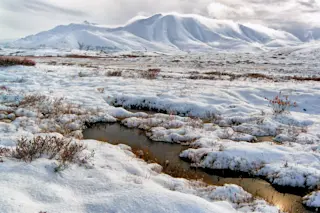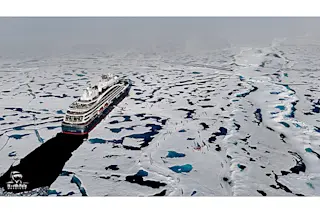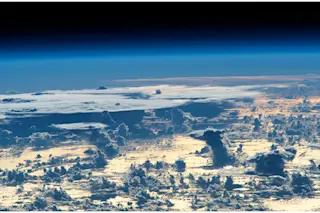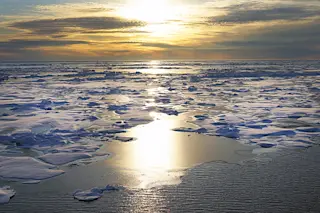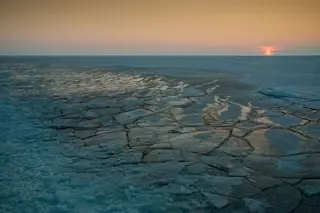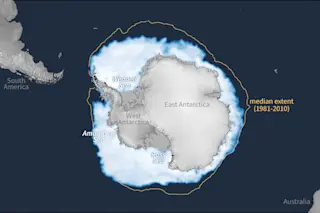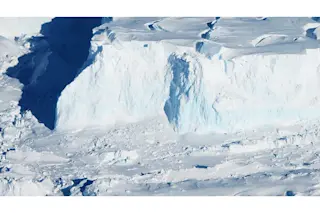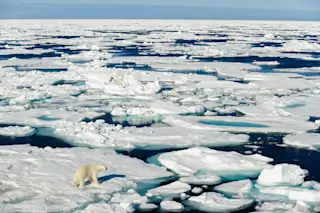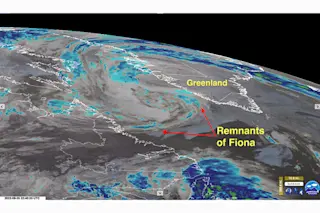All rising sea levels are not equal: The increase is happening more than twice as fast in Argentina as in France. Jerry Mitrovica, a geophysicist at the University of Toronto, has figured out why— and his work may reveal where global warming is having the most effect and where flooding might occur.
Predicted steep rises in sea level (red) from melting in Antarctica (top) and Greenland (bottom).Courtesy of Jerry Mitrovica/University of Toronto
Melting ice sheets don't cause water to rise equally everywhere, Mitrovica explains, because ice sheets exert a slight gravitational attraction that draws surrounding ocean waters toward them. That means when the sheets melt, they lose mass— and some of their gravitational grip. "When the Greenland ice sheet melts, the total amount of water in the oceans increases, yet sea levels actually fall within 2,000 kilometers [1,200 miles] of that ice sheet."
Mitrovica and his colleagues developed a computer ...




